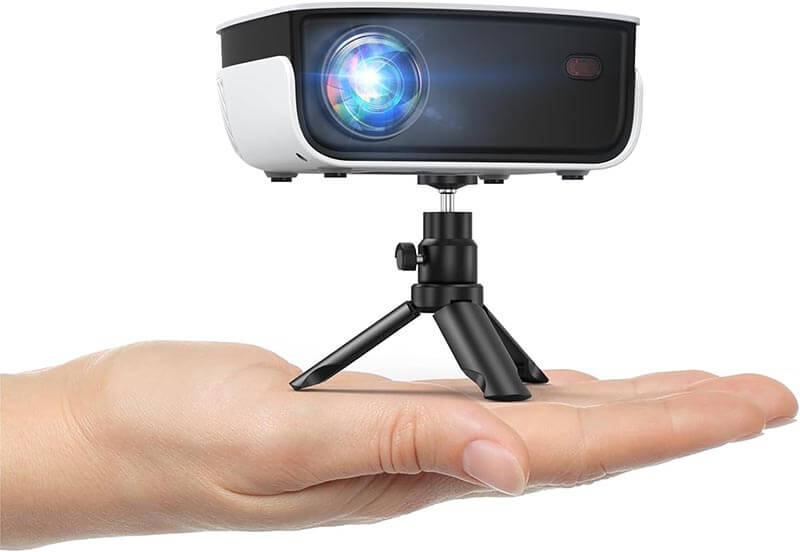

Portable projectors have become a versatile solution for on-the-go entertainment and professional presentations. Choosing the right one can be a daunting task with the myriad of options available. This guide aims to simplify the selection process, providing you with essential factors to consider when choosing a portable projector that suits your needs.
Consider Your Use Case: Before delving into technical specifications, identify your primary use for the portable projector. Are you looking for a device for business presentations, outdoor movie nights, or casual gaming? Understanding your specific needs will guide you toward the features that matter most.
Brightness Matters: Projector brightness is measured in lumens, and the appropriate level depends on your usage environment. For darker spaces, a projector with 1,000 to 2,000 lumens is generally sufficient. However, for outdoor or well-lit areas, aim for a higher brightness level, around 3,000 lumens or more.
Resolution for Clarity: Projector resolution determines the clarity of the image. For standard use, a resolution of 720p is acceptable, but for sharper and more detailed images, consider opting for 1080p or even 4K resolution, especially if you plan to use the projector for gaming or detailed presentations.


Portable Size and Weight: The whole point of a portable projector is its mobility. Consider the size and weight of the device, ensuring it aligns with your portability needs. Compact and lightweight projectors are ideal for frequent travelers or impromptu movie nights.
Battery Life: If you intend to use the projector where power outlets are scarce, battery life becomes a critical factor. Look for a portable projector with a long-lasting battery, allowing you to enjoy extended viewing sessions without interruptions.
Connectivity Options: Evaluate the available connectivity options to ensure compatibility with your devices. Most portable projectors offer HDMI and USB ports, but if you plan to connect wirelessly, check for Bluetooth and Wi-Fi capabilities. Some projectors also support screen mirroring and casting.
Built-In Speakers or Audio Out: Consider the audio features of the projector. Built-in speakers are convenient, but for a better audio experience, look for a projector with audio-out ports that allow you to connect external speakers or sound systems.
Keystone Correction and Focus Adjustment: Keystone correction corrects distorted images caused by the projector’s angle. Look for a projector with keystone correction for flexibility in placement. Additionally, easy focus adjustment is crucial for obtaining a clear and crisp image.
Brand Reputation and Reviews: Research the reputation of different brands and models. Read user reviews to gain insights into real-world experiences with the projector you are considering. Pay attention to both positive and negative feedback to make an informed decision.
Budget Considerations: Set a realistic budget based on your requirements. Portable projectors come in a wide price range, so determine the features that matter most to you and find a balance between functionality and cost.
Conclusion: Selecting the right portable projector involves considering various factors, each tailored to your specific needs. By understanding your preferences and keeping these key considerations in mind, you can confidently choose a portable projector that enhances your entertainment or professional experiences.